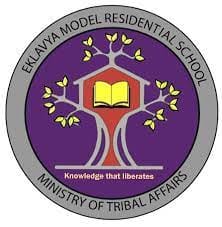Geography | - Meaning and scope of Geography, Approaches and methods to the study of geography, Major Geographical thoughts- Environmental Determinism, Possibilism, Probabilism, Regionalism, Logical Positivism and Behaviorism.
- Structure of atmosphere, insolation and heat budget, horizontal and vertical distribution of temperature, inversion of temperature, air pressure belts wind system, movement of wind belt, local winds, humidity and precipitation, rainfall type, cyclone and anticyclone, classification of climates by Koeppen and Thornthwaite, Major climate regions of world.
- International structure of earth rock types, Plate Tectonic Theory, Volcanoes and earthquakes folds, faults, and resultant topography, WM Davis’s concept of cycle of erosion, works of river, underground water, sea and glaciers.
- Ocean deposits, temperature and salinity of oceanic water, ocean currents, tides and waves, coral islands and coral reefs origin, distribution and environmental importance.
- Concept of ecosystem, terrestrial ecosystems types and their distribution, deforestation – problems and conservation, disaster types and management.
- Man- environmental interrelationship impact of technology agriculture, industrial and information revolution, population growth and distributional pattern, Demographic Transition Theory, rural and urban settlements.
- Concept and classification of resources, Principles of resource conservation, Water, soil mineral and energy, uses, problems and their conservation. Geographical conditions, world distribution, production and trade, major crops – rice, wheat, cotton sugarcane, tea, coffee and rubber major agricultural regions of world, major industrial regions of world, factors of location of industries, major theories of industrial location, international trade, Major trade, blocks, major international transportation routes and harbors.
- Culture elements, major cultural realms. races and tribes.
- Concept and types of regions salient features of developed and developing countries of word study of some select, regions of world – Anglo, America, European community, Russia, China, Japan, South-east Asian and South west Asia.
- India’s geographical features – relief drainage system, climate, natural vegetation and soil.
- Major mineral resources- iron – ore. mica. bauxite atomic minerals and energy resources,
- Major agriculture crops of food grains and each crop, recent trends in agriculture, irrigation and multipurpose projects. industrial development, industrial region, industrial policy, location distribution, production and problems of major industries iron and steel, cotton textile, cement, sugar and paper
- Regional patterns of population growth and distribution, related problems and their solutions, regional development disparity – causes and remedial measures, reorganization states – problems and their solution.
|





